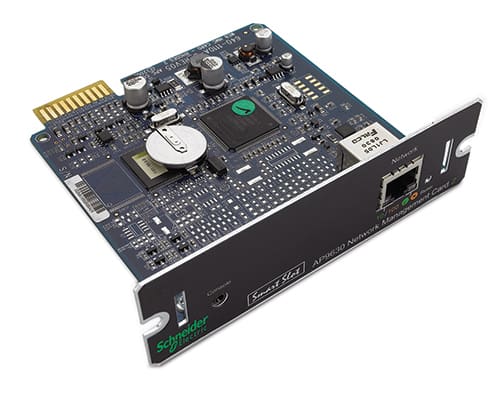Digital forensics is a subcategory of forensic science that looks at evidence found on computers, digital devices, internet networks, and any other digital platform. If forensics is the science of investigating a crime scene, think of digital forensics as the science of investigating a digital crime scene.
When someone uses the internet or a digital device to victimize another person or group, law enforcement uses digital forensics to investigate, collect evidence, and eventually prosecute the crime.
Any device that stores data may be subject to a digital forensics investigation following a crime. Just like a crime scene forensics investigator could give us advice about how to protect ourselves from certain crimes, a digital forensics expert can help us protect our data and our privacy!

How Digital Forensics Responds to Cybersecurity Threats
Digital forensics experts divide their investigations into five subcategories, based on the type of device that was used in the cyberattack.
- Computer forensics
- Network forensics
- Forensic data analysis
- Mobile device forensics
- Database forensics
Many cyber crimes involve multiple subcategories at once.For example, a phishing attack could originate on a mobile phone, target someone using a desktop computer at work, and then quickly transition to an attack on the network or a specific database.
Investigators will identify, acquire, and analyze digital evidence from all of these sources. This evidence is likely to be used in the court proceedings that follow a cyberattack.
By analyzing how these cyberattacks occur, digital forensics specialists can offer important guidance on how to fortify your data and protect your privacy.
The History of Digital Forensics
In 1978, the Florida Computer Crimes Act was the first law in the country that dealt specifically with cyber crimes. This act criminalized any unauthorized deletion or modification of data.
Many more laws followed, both in individual states and at the federal level.
These include laws about:
- Copyright protections and intellectual property
- Digital privacy
- Health information privacy (HIPAA)
- Child sexual abuse materials (often referred to as child pornography)
- Online harassment and stalking
- “Revenge porn”
- Children’s online privacy protection (COPPA)
When any of these laws are violated, the investigation will include the appropriate subcategories of digital forensics.
In the early 1990s, this kind of work was called “computer forensics,” but the name shifted to “digital forensics” when it became clear that these crimes weren’t just occurring on computers, but on digital devices and networks, too.
In the 2000s, as cybercrime rates increased, digital forensics has continued to develop. Methods have been standardized, departments and agencies have merged, and best practices have emerged.
The Convention on Cybercrime treaty was signed by 43 nations in 2004. The purpose of this treaty was to improve international collaboration on the investigation of cybercrimes, which are often multi-national in nature.
Types of Investigations that Use Digital Forensics
There are many types of investigation where digital evidence may need to be collected:
- Online fraud
- Identity theft
- Data theft
- Network and data breaches
- Violent crimes that may be documented on digital devices
- Embezzlement
- Corporate fraud
- Extortion
The Risks to Digital Data
It is difficult to imagine any organization or corporation that exists today that doesn’t have some kind of data use. The only obvious examples are children’s lemonade stands, rummage sales, or other cash-only businesses that involve no trading of any information.
Every modern company or organization must consider the potential risks to the data they collect and use.
- Malicious cybersecurity attacks from criminals and hackers
- Risks of being non-compliant with local, state, and federal data management requirements
- Third-party vendor breaches and gaps
- Identity theft
Subcategories of Digital Forensics
Let’s break down those five subcategories of digital forensics. Learning about each category can help you understand how cyber attacks could happen in these areas. When you have more information, you can make better decisions about securing your individual or corporate data.
Computer Forensics
Computer forensics, which was the original label for all digital forensics, now refers to the investigation of laptop and desktop computers and any of the digital information they store on their hard drives.
Computer forensics investigations teach us to maintain a precise legal audit trail and a clear chain of custody for everything that is saved onto a specific machine.
Network Forensics
Network forensics involves the registration and monitoring of network activities. Network data changes rapidly as it is transmitted between computers, gateways, routers, wireless access points, servers, and more.
When a digital forensics investigator gets involved, their investigation is not limited to what already happened. The dynamic nature of network activities requires them to proactively investigate what is still happening with the affected data.
Forensic Data Analysis
Forensic data analysis is used almost exclusively to investigate financial crimes such as fraud and embezzlement. Investigators analyze structured data, which is likely housed in application systems and databases.
Mobile Device Forensics
In a digital forensics investigation, mobile devices can include smartphones and watches, tablets, e-readers, handheld gaming systems, GPS devices, and some laptops.
Mobile device forensics requires the examination and recovery of digital evidence from these mobile devices.
Database Forensics
In the course of database management, companies store and make changes to data. When a cyberattack occurs, that database may be accessed or changed. Forensics investigators may look into the database to determine fraudulent transactions from a cyber attack or from criminal activity within your organization.
This may also involve looking at timestamps, update times, and action verification of database users.

Do You Need to Protect Your Data From Digital Forensics Investigators?
Does the idea of an outside party gaining access to your data, networks, and devices make you feel a little nervous or uncomfortable?
If so, you’re not alone.
When you are the victim of a crime, including corporate cybercrime, it can feel violating to hand over your digital networks and devices to law enforcement and forensic investigators. Additionally, corporations are often reasonably concerned about how their company’s data or their clients’ data may be used during these investigations.
A 2022 conference paper presented the following concerns:
“As we know, in a digital forensic investigation, the investigators extract evidence from different types of digital media. However, the extraction method itself unlocks the way for digital forensic investigators to encroach the privacy of the individual. To detect fraud, an investigator collects and analyzes the digital evidence connected to the fraud that has taken place and presents it in court to prove convict. There are no legal or technical structures in place that can keep a check on the investigation procedures to prevent this breach of privacy.”
Ways to Protect Privacy During the Investigation
Your users, clients, and employees deserve to have their Personally Identifiable Information (PII) protected, even in the event of a forensics investigation. In fact, after a breach or attack, people are going to be especially concerned about what happens to the data you store on your networks, computers, mobile devices, and databases.
How will you protect user data from being revealed to the public during the course of an investigation or the court proceedings that follow it?
Some of the best strategies are:
- Use redactive technology to redact PII from your digital storage
- Automate the process of replying to data requests in a way that uses redaction to protect PII (this includes public records requests, court orders, and other legally binding requests)
- Preemptively hire a digital forensics expert to identify gaps in your processes
Hiring Your Own Digital Forensics Investigator to Protect Your Privacy
Not all forensics investigations require law enforcement involvement. You can hire a digital forensics investigator in a number of situations, including:
- When you want to have your own investigation conducted after a cyber attack
- When you want to investigate misuse of company data, computers, networks, or devices – even when police involvement is unnecessary
- When you want to conduct an assessment of your current policies and procedures in order to find mistakes or identify gaps in your security
If you have concerns about how data is being collected, stored, and managed at your company, it may be time to bring in a digital forensics investigator to help protect your privacy.













